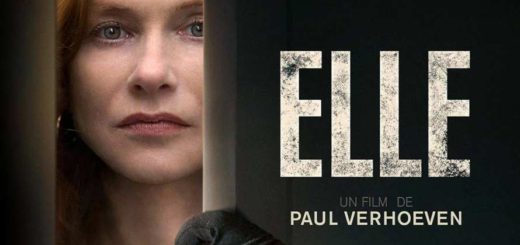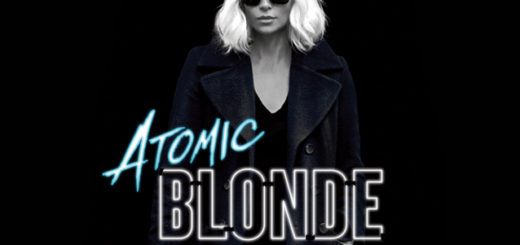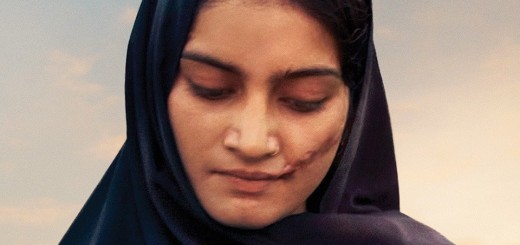THE SQUARE Review
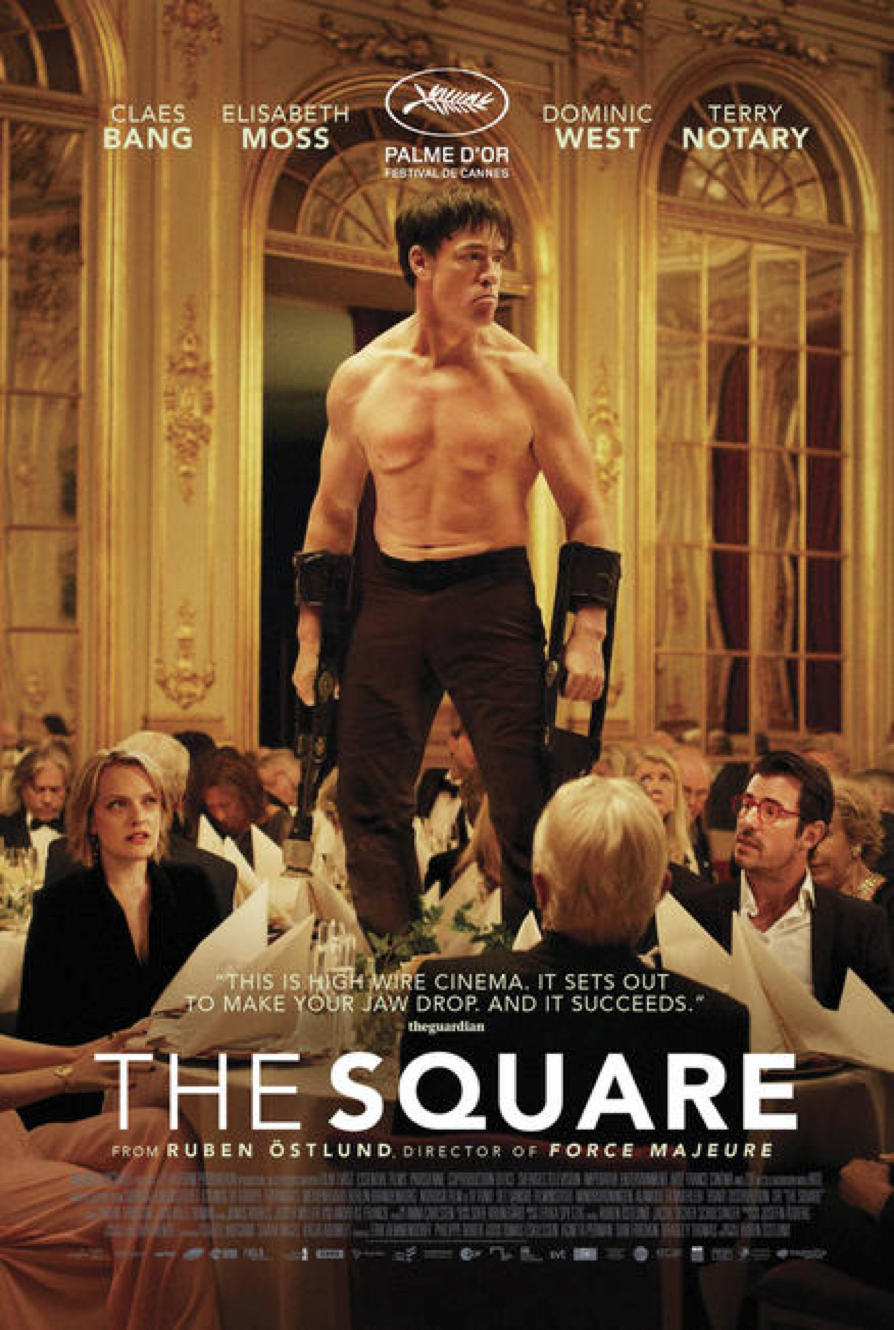
Director: Ruben Ostlund
Genre: Satire, Drama
Year: 2017
Early on in THE SQUARE, Swedish art curator Christian (Claes Bang) is being interviewed by an American named Anne (THE HANDMAID’S TALE’s Elisabeth Moss). Anne questions Christian about a confusing description of an art exhibition, and Christian provides a strange answer. Instead of directly responding, he asks, “Well, if I place your bag in this museum, is it then a piece of art?” Anne is clearly confused by Christian’s reply, but nods after a moment and says it makes sense. This quick conversation seems to be the thesis for Swedish filmmaker Ruben Ostlund’s latest feature, which won the prestigious Palme d’Or last May, but to me, it also serves as a metaphor for the film as a whole. Just as putting a random item in a museum doesn’t make it art, winning the highest award at Cannes doesn’t make THE SQUARE a good film.
For most of THE SQUARE, we follow Christian, the art curator of a contemporary art museum in Stockholm, as he struggles with marketing a new art exhibit (“The Square”). Christian also has to deal with both the theft of his phone and wallet and his burgeoning relationship with Anne following their interview. Designed to be a commentary on what is defined as art in today’s society, THE SQUARE has a few darkly comic moments—and, in particular, one great scene that could serve as a short film unto itself. However, the majority of THE SQUARE oddly chooses to focus on Christian’s stolen phone rather than the more interesting subplot of releasing the eponymous art exhibition, and the film suffers as a result.
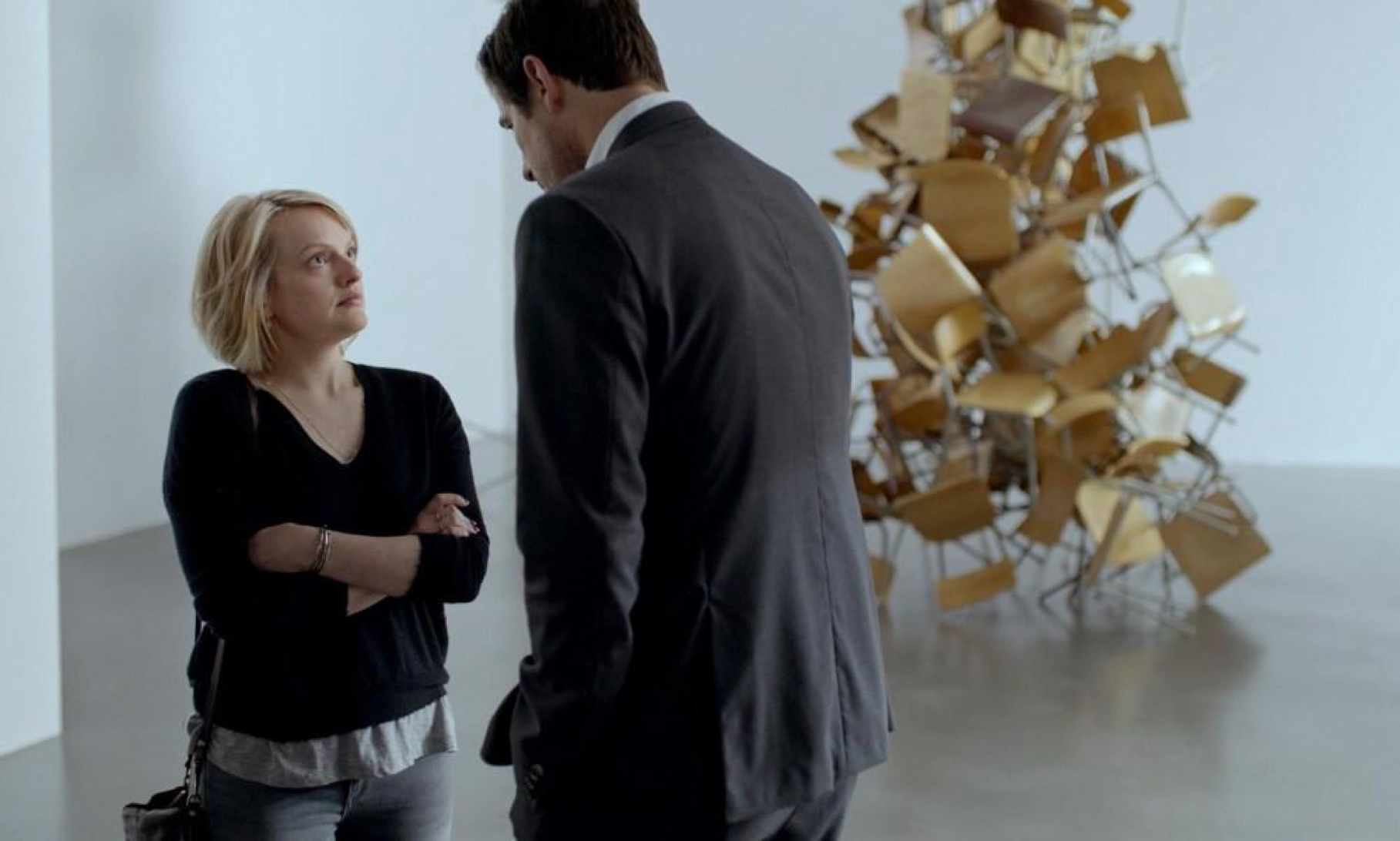
That stack of chairs in the background seems to defy every law of physics known to man
Apparently cut down to 142 minutes, THE SQUARE still feels bloated and oddly paced at points. The characters are poorly examined and their actions often contradict themselves. The biggest problem THE SQUARE faces, however, is that it lacks any form of subtlety or finesse that many other films, even other examples of Ostlund’s filmography, have perfected. In one of the last scenes, Christian makes a video designed as an apology, but it quickly transforms into an on-the-nose monologue about art and society. Even though Claes Bang’s performance is strong, I couldn’t help but cringe at the speech—it felt overly explicit, especially in a movie meant to be a clever satire.
Another important sequence occurs shortly after the museum releases a shockingly graphic promotional video for The Square. When Christian calls a press conference to publicly apologize, one reporter is angry due to the tasteless nature of the clip, while another journalist is furious over Christian taking the clip down, calling it an act of self-censorship. Just as with Christian’s speech, the scene works thematically with the story, but the delivery is too heavy-handed and straightforward. It seems as if Ostlund tried to cram too much into his latest feature, almost like an artist throwing paint on a canvas and seeing what will stick, instead of focusing on one idea and expressing it as creatively as the modern art exhibits in Christian’s museum.
The supporting performances are great, but they unfortunately add little to the film. Dominic West from THE WIRE is heavily underused as contemporary artist Julian, appearing in only two scenes throughout the entire runtime. Elisabeth Moss is also terrific as Anne and centers one of the few terrific scenes in the film, where she confronts Christian about using his powerful position as a way to sleep with women. However, the most notable side character is Oleg, played impeccably by Terry Notary, who gives the absolute best performance in the film without uttering a single word.
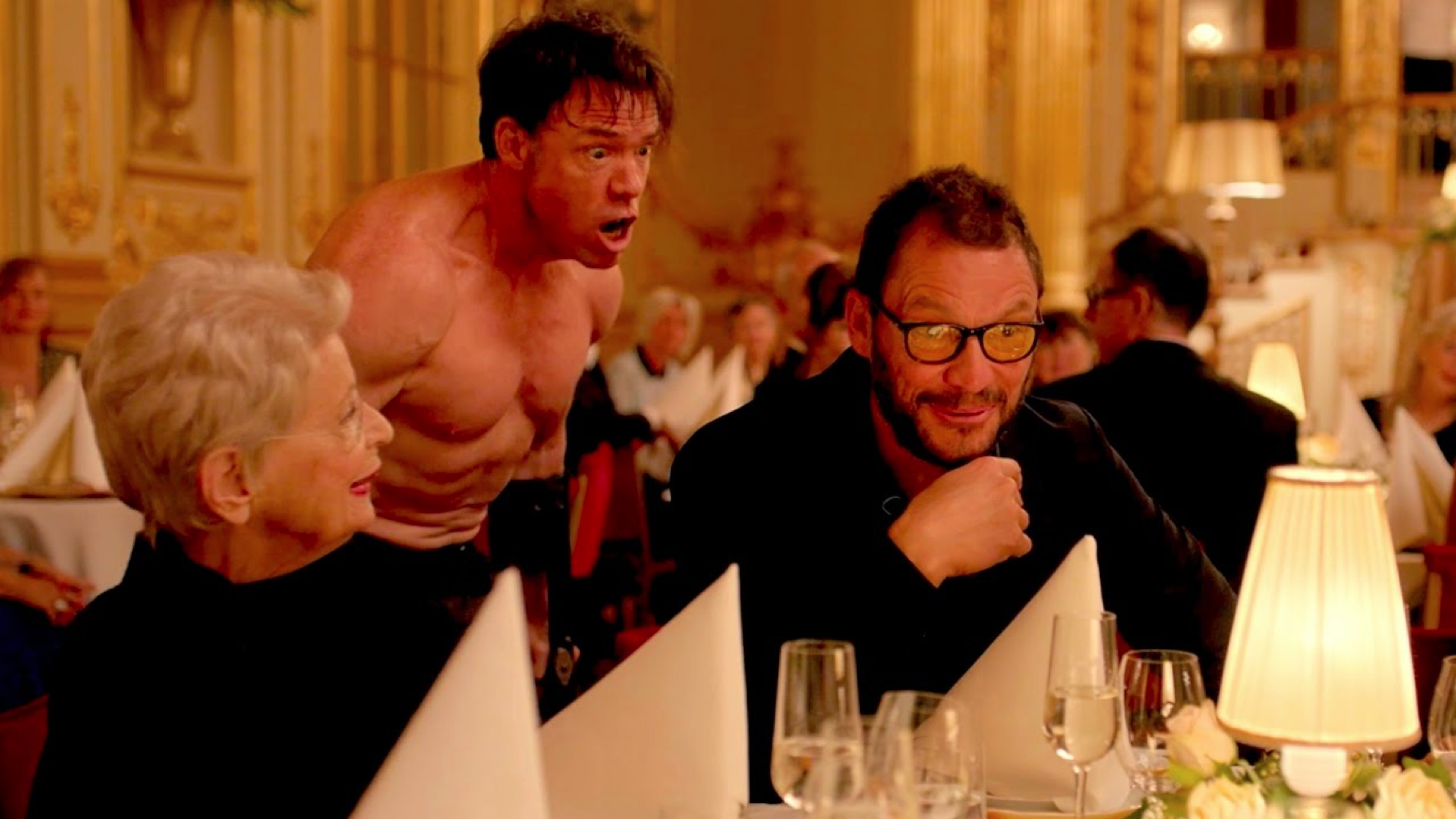
My face when I realized that THE SQUARE won the Palme over GOOD TIME and THE BEGUILED
In a brilliantly directed sequence, patrons of Christian’s art museum are gathered for a fancy dinner. The main exhibition of the evening is revealed to be a muscular man (Oleg) running around the tables, acting like a savage gorilla. At first, people chuckle at watching a grown man dashing around half-naked, pounding his chest and making loud roaring and hooting sounds. However, slowly but surely, more and more of the guests begin to feel threatened and terrified of Oleg after he scares one man out of his chair and starts clenching a young woman’s hair. The scene serves as a brilliant, almost parodic example of what people today might consider art. Oleg—and Terry Notary, for that matter—immerses himself in that role, so much so that even the audience watching the movie starts to think of Oleg as a raging animal rather than a human being.
This sequence shows off Ostlund’s talent and craft as a filmmaker, but the rest of THE SQUARE is fundamentally forgettable. There is some stellar cinematography throughout the film: one shot of Christian and his daughters climbing a staircase near the finish is particularly stunning. Ostlund’s direction is superb and Bang, Moss, West, and Notary make a great cast. Unfortunately, the overindulgence of ideas, the runtime that could be cut by 30 or 40 minutes, and—most of all—the utter lack of subtle comedy make THE SQUARE a very poor satire. DR. STRANGELOVE, THE GREAT DICTATOR, and NETWORK are all brilliant caricatures of nuclear apocalypse, Hitler, and the news media, respectively, because they dive deep into their subjects and mock their flaws. When it comes to modern art and how it is seen by contemporary viewers, however, THE SQUARE rarely goes beneath the surface.
Verdict: Do Not Recommend

